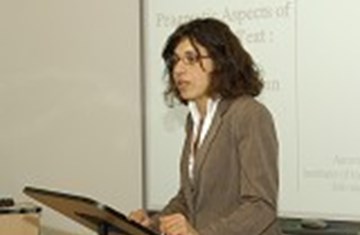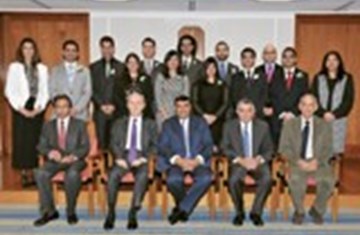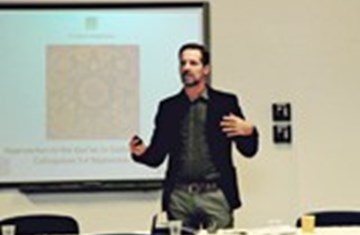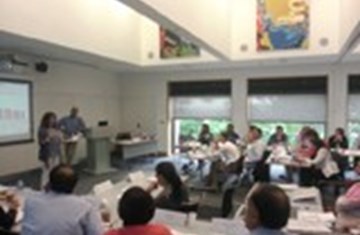IIS Scholar Investigates Perceptions of Youth in Northern Pakistan
The study analyses primary data, shedding light on young people’s perceptions of the nature of their own society. It attempts to unpack the relations between different social sectors, identifying the limitations and opportunities faced by youth from the mountainous Northern Areas. Dr Abbas is seeking to establish what empowers youth in this challenging setting so as to suggest measures for effective youth development in that society.
Pakistan’s Northern Areas extend over 72,496 sq. km and are situated between China’s Xinjiang province to the north, Afghanistan to the north-west and the Indian controlled provinces of Kashmir and Ladakh to the south. The predominantly rural population is scattered across a high mountainous landscape. Subsistence agriculture is practised by around 80% of the population, while the other 20% are engaged in services and small trades.
The Northern Areas have had a different development trajectory than the rest of Pakistan, particularly due to its constitutional status as a Federally Administered region and its geographic location. “All this makes it pertinent to have input from the target population, that is, the youth, so that it can inform programmes to improve its quality of life. For that purpose, it is essential to engage with the grassroots and reflect upon the present status and future prospects of the young people”, notes Dr Abbas. The completed questionnaires and focus group feedback, together with the one-to-one interviews with cultural professionals, are intended to contribute to a clearer understanding of young people in the Northern Areas. The study seeks to highlight their observations and aspirations on ways in which to lead a successful life.
During his fieldwork, Dr Abbas also visited the Karakoram International University (KIU), established in Gilgit in 2002, as the first university in Pakistan’s Northern Areas. There he lectured to Business Administration students on building youth capacities locally. He also gave a talk to KIU’s Social Science faculty on Approaches to Qualitative Research.
Pakistan’s Northern Areas extend over 72,496 sq. km and are situated between China’s Xinjiang province to the north, Afghanistan to the north-west and the Indian controlled provinces of Kashmir and Ladakh to the south. The predominantly rural population is scattered across a high mountainous landscape. Subsistence agriculture is practised by around 80% of the population, while the other 20% are engaged in services and small trades.
The Northern Areas have had a different development trajectory than the rest of Pakistan, particularly due to its constitutional status as a Federally Administered region and its geographic location. “All this makes it pertinent to have input from the target population, that is, the youth, so that it can inform programmes to improve its quality of life. For that purpose, it is essential to engage with the grassroots and reflect upon the present status and future prospects of the young people”, notes Dr Abbas. The completed questionnaires and focus group feedback, together with the one-to-one interviews with cultural professionals, are intended to contribute to a clearer understanding of young people in the Northern Areas. The study seeks to highlight their observations and aspirations on ways in which to lead a successful life.
During his fieldwork, Dr Abbas also visited the Karakoram International University (KIU), established in Gilgit in 2002, as the first university in Pakistan’s Northern Areas. There he lectured to Business Administration students on building youth capacities locally. He also gave a talk to KIU’s Social Science faculty on Approaches to Qualitative Research.






